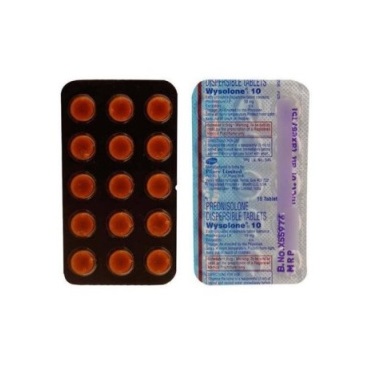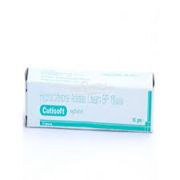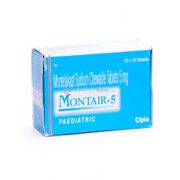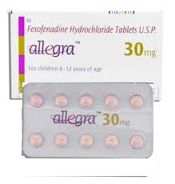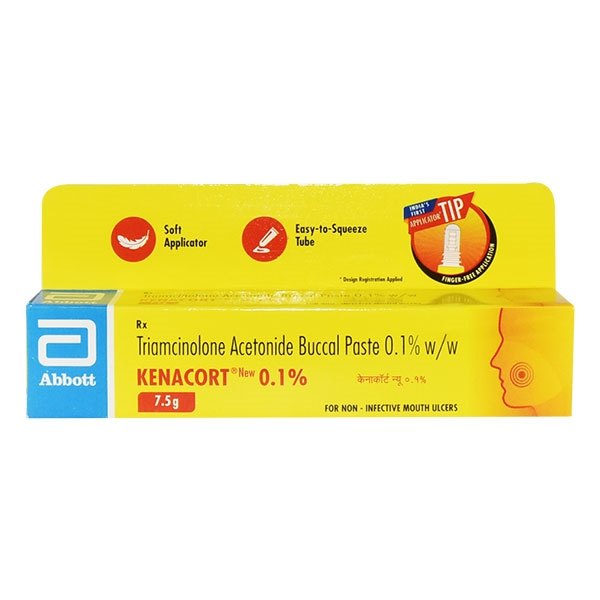Wysolone 10 mg
In the realm of pharmaceuticals, certain medications hold a significant place due to their widespread use and impact on medical conditions. One such medication that has garnered attention is Wysolone 10mg. This comprehensive guide aims to delve into the depths of this medicine, unveiling its uses, benefits, potential side effects, and all the necessary insights to help you understand and make informed decisions regarding this medication.
Wysolone 10 mg Tablet, a corticosteroid medication, belongs to the family of drugs known as glucocorticoids. Prednisolone, the active component of Wysolone, serves as a potent anti-inflammatory and immunosuppressant agent. It's often prescribed to manage a wide range of conditions, including autoimmune disorders, allergic reactions, severe asthma, and various inflammatory diseases.
The Mechanism of Action
At its core, Wysolone 10 mg operates by suppressing the immune response and reducing inflammation in the body. By doing so, it helps alleviate the symptoms associated with conditions like arthritis, lupus, and
allergies. The medication achieves this by inhibiting the production of certain chemicals that trigger inflammation and by modulating the immune system's response.
Medical Uses and Benefits
Wysolone 10mg finds application in diverse medical scenarios, each highlighting its efficacy and impact.
Uses of Wysolone 10 mg Tablet
Wysolone 10 mg Tablet, with its active component prednisolone, serves as a versatile medication with a spectrum of uses across various medical conditions. Below, we outline some of the primary uses of Wysolone 10mg Tablet and its effectiveness in managing these conditions.
Autoimmune Disorders
When the immune system unintentionally assaults the body's own cells and tissues, autoimmune diseases develop. Wysolone 10 mg's potent anti-inflammatory and immunosuppressant properties make it a valuable tool in managing autoimmune conditions such as:
Rheumatoid Arthritis: Wysolone 10mg helps reduce joint inflammation and pain in individuals with rheumatoid arthritis, improving their quality of life.
Systemic Lupus Erythematosus (SLE): This medication aids in controlling the symptoms of SLE, a chronic autoimmune disease affecting multiple organs.
Inflammatory Bowel Diseases (IBD): Wysolone 10 mg Tablet can mitigate the inflammation associated with conditions like Crohn's disease and ulcerative colitis.
Allergic Reactions
Wysolone 10mg Tablet plays a crucial role in managing severe allergic reactions by suppressing the immune response and alleviating symptoms. It is effective in treating:
Anaphylaxis: In cases of life-threatening allergic reactions, Wysolone can help stabilize the immune response and prevent further complications.
Allergic Dermatitis: It can alleviate skin inflammation and itching caused by allergic dermatitis, offering relief to patients.
Respiratory Conditions
Wysolone 10 mg is particularly beneficial in managing respiratory conditions characterized by inflammation and breathing difficulties:
Asthma: For severe cases of asthma, Wysolone 10mg reduces airway inflammation, thereby improving lung function and decreasing the frequency of asthma attacks.
Chronic Obstructive Pulmonary Disease (COPD): In certain cases of COPD, This Tablet assists in reducing inflammation and easing breathing difficulties.
Inflammatory Diseases
Inflammation is a hallmark of various diseases, and Wysolone's anti-inflammatory properties make it effective in managing:
Arthritis: Whether it's rheumatoid arthritis or osteoarthritis, Wysolone 10 can alleviate joint inflammation and pain associated with these conditions.
Dermatological Conditions: It can be used to treat inflammatory skin conditions like eczema and psoriasis, providing relief from itching and irritation.
Autoimmune Disorders
When the immune system unintentionally targets healthy cells, autoimmune diseases result. Wysolone 10 mg intervenes by suppressing this abnormal immune response, offering relief to patients with conditions like rheumatoid arthritis and Crohn's disease.
Respiratory Conditions
For individuals battling severe asthma, Wysolone 10mg can be a game-changer. By reducing inflammation in the airways, it helps improve breathing and minimizes the frequency of asthma attacks.
Allergic Reactions
In cases of severe allergic reactions, Wysolone 10 mg Tablet swiftly steps in to alleviate symptoms such as swelling, itching, and hives. It does so by dampening the body's exaggerated immune response to allergens.
Potential Side Effects
While the benefits of Wysolone 10mg Tablet are remarkable, it's essential to be aware of potential side effects.
Short-term Effects
Short-term use of This Tablet might lead to temporary side effects like increased appetite, insomnia, mood swings, and water retention. These effects are usually mild and tend to subside as the medication course concludes.
Long-term Effects
Prolonged usage of This Tablet, especially at higher doses, can lead to more significant side effects such as weight gain, osteoporosis, increased susceptibility to infections, and adrenal gland suppression. Regular medical monitoring is crucial in such cases.
Dosage and Administration
Wysolone 10 mg dosage varies depending on the medical condition being treated, the patient's age, and other factors. It's vital to strictly adhere to the prescribed dosage and follow your healthcare provider's instructions.
Precautions and Considerations
Before embarking on a course of Wysolone 10mg, certain precautions and considerations merit attention.
Medical History
Inform your healthcare provider about your complete medical history, including ongoing medications and past medical conditions. By using this information, they can modify the treatment to meet your unique needs.
Pregnancy and Breastfeeding
For pregnant or breastfeeding individuals, the decision to use Wysolone 10 mg Tablet should be made in consultation with a medical professional, weighing the potential benefits against the risks.
Avoid Abrupt Discontinuation
Abruptly stopping Wysolone 10mg Tablet can lead to adrenal insufficiency. When discontinuing the medication, it's crucial to follow a tapering-off schedule under medical guidance.
FAQs About Wysolone 10 mg
What is Wysolone 10mg used for?
This Tablet is primarily used to manage various medical conditions that involve inflammation and immune system responses. These include autoimmune disorders, severe allergies, inflammatory diseases, and certain respiratory conditions like asthma.
How does this tablet work?
The active component in this tablet, prednisolone, functions as an immunosuppressant and anti-inflammatory agent. It suppresses the immune response and reduces inflammation by inhibiting the production of certain chemicals that trigger these responses.
What are the common autoimmune disorders treated with this tablet?
Wysolone 10 mg is commonly prescribed for autoimmune disorders such as rheumatoid arthritis, lupus, multiple sclerosis, and inflammatory bowel diseases like Crohn's disease and ulcerative colitis.
Can Wysolone 10mg be used for allergic reactions?
Yes, Wysolone 10 mg Tablet can be used to manage severe allergic reactions. It helps reduce swelling, itching, and other allergic symptoms by dampening the body's exaggerated immune response to allergens.
What are the potential side effects of Wysolone 10mg Tablet?
While This tablet can provide significant relief, it's essential to be aware of potential side effects. These can range from short-term effects like increased appetite and mood swings to long-term effects like weight gain, osteoporosis, and increased susceptibility to infections.
Is Wysolone 10 mg safe for long-term use?
Long-term usage of Wysolone 10mg should be carefully considered and monitored by a healthcare professional. Prolonged use, especially at higher doses, can lead to more significant side effects. Regular medical check-ups are crucial for individuals on long-term treatment.
How is Wysolone 10 mg Tabletadministered?
Wysolone 10mg Tablet is usually taken orally in the form of tablets. The dosage and administration instructions will be provided by your healthcare provider based on your specific medical condition and needs.
Conclusion
In the medical landscape, Wysolone 10 mg emerges as a multifaceted medication with far-reaching implications. From battling autoimmune disorders to addressing allergic reactions, its impact is undeniable. However, its usage should be approached with caution, adhering to medical guidance and considering potential side effects.


